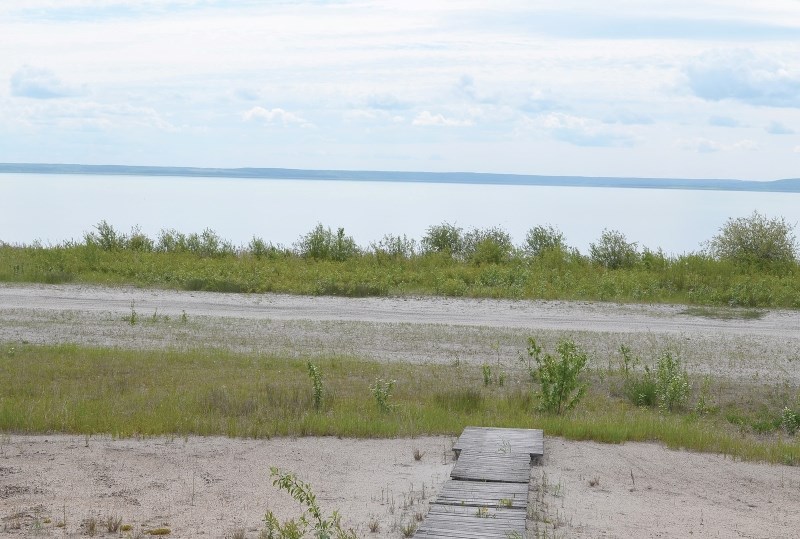Residents living around the ever-depleting Muriel Lake will once again be seeking government help to save the local body of water.
Since 1974 the local lake has seen a total loss of 4.5 metres in depth and approximately 250 million cubic metres of water.
Landowners around the lake have joined together as the Muriel Lake Basin Management Society (MLBMS) and have been voicing their concerns for over two decades in an attempt to find out what is happening to the water body.
The group's next attempt to save Muriel Lake will see them send a letter along with a recently passed resolution to Shannon Phillips, Minister of Environment, in hopes of creating a planning committee for the lake.
“I've written countless letters to ministers. Every time there is a new minister I will write a new letter,” said Lyall Kortzman, President of the MLBMS. “I haven't written a letter to Shannon Phillips, so I am going to send her one with the accompanying resolution.”
The MLBMS resolution, which was passed at the annual general meeting on July 12, will ask the provincial government to help them establish a planning committee for Muriel Lake. This committee would consist of government staff, independent hydrogeologists and hydrologists, volunteers from the MLBMS and other specialists.
The idea would be for this group to table a plan to begin pumping water from either the Muriel Lake aquifer or the North Saskatchewan River into Muriel Lake by no later than the spring of 2017.
“Muriel Lake was once considered one of Alberta's top lakes for water quality, sport fishing and water sports and had pristine sandy beaches,” states the resolution. “The condition of the lake is such that these activities can no longer be enjoyed.”
Today, the lake is half it's original size, has no fish in it, no wildlife around it, no recreational activities on it and has seen toxic blue-green algae appear in it.
According to Kortzman, past contact with the provincial government has resulted in them receiving the same response.
“Every time (we contact the province) they come back and say (the water loss) is all climate related and that they aren't going to do anything,” said Kortzman.
Dave Hanson, MLA for Lac-La Biche-St. Paul was in attendance at the most recent AGM and offered his support to the group in their quest to save the lake.
“As an MLA I will do what I can from my end of it at the Legislature to help you guys out,” said Hanson, who has been going to Muriel Lake his entire life. “Whether I'm helping out with grant applications or standing up and banging my fist on the desk; I just want to let you know that I support you 100 per cent. Muriel Lake has a personal (meaning) for me.”
In an attempt to try and disprove the government's theory that the lake state is all due to climate change, the MLBMS passed a motion to commission a study of surface water and surface disturbances.
The disturbances they hope to look at include natural changes along with human and industrial disturbances such as roads, culverts, industrial facilities and beaver dams.
“This is the only thing that hasn't been looked at,” said Kortzman. “There have been reams of studies and the government has put out all sorts of information, but they have never taken a look at how all of these road systems that are in place (effect the water). Our lake is basically surrounded by road systems and they don't have adequate drainage.”
Matrix Solutions Inc. an environment and engineering firm, will be heading up the preliminary assessment of surface disturbances. The study will only be an initial look at the lake and the possible disturbances that are affecting it. Only existing data and information will be looked at and analyzed to see if there are any other avenues that need to be researched further.
“We have never, ever followed up to determine whether or not this has an impact on the lake. It might very well come up and determine that it is all due to the climate but we don't know for sure,” said Kortzman.
The study will cost the MLBMS $4,000 and is expected to be completed over the course of the next six months. From the society's board will meet to review the data and decide what action to take.



